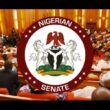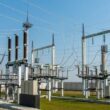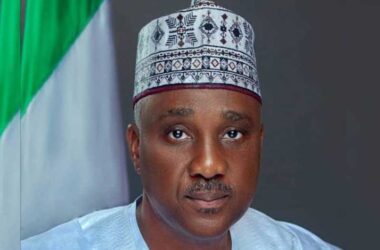The Federal Government of Nigeria is facing legal battles over the construction of the Lagos-Calabar Coastal Highway, a massive infrastructure project valued at N15.36 trillion. Despite the lawsuits, the government remains steadfast in continuing the 700km project, which stretches across several coastal states from Lagos to Cross River.
During a press briefing in Abuja, the Minister of Works, David Umahi, addressed the public’s concerns and the court actions filed by landowners. Many property owners whose lands lie on the highway’s path have taken legal action, citing insufficient compensation for their properties.
Affected landowners argue that the compensation offered does not reflect the value of their investments. One landowner, Olanrewaju Ojo, said, “This is ridiculous! What am I supposed to do with this? I will make this in a week,” after receiving a compensation of N1.3 million.
Minister Umahi reassured the public that the government followed all necessary legal procedures and dismissed claims that the project lacked proper authorization.
He stated that environmental and social impact assessments had been completed, and the project was included in the 2023 supplementary budget. However, he acknowledged that ongoing court cases could potentially delay the project and increase its cost.
The Lagos-Calabar Coastal Highway, which began construction in March 2024, is designed to boost economic activities along Nigeria’s coast. Spanning eight coastal states, the road will cost approximately N4 billion per kilometer, with the government awarding contracts for sections of the road totaling N2.46 trillion.
Despite the controversies, Umahi emphasized the importance of the project and pledged the government’s commitment to its completion within an eight-year timeline. He also defended the cost of the project against comparisons to similar international projects, highlighting that local market realities were considered in the pricing.
The minister further urged cooperation from all levels of government and the private sector to ensure the success of the project. He also introduced measures to improve project oversight, such as the appointment of field staff to monitor construction and the involvement of local communities to report any issues.
While Umahi acknowledged the financial challenges faced by the Ministry of Works, he expressed optimism about the future of Nigeria’s road infrastructure and highlighted the introduction of a Public-Private Partnership scheme to help finance road projects. The government aims to complete four major projects by 2025 as part of its infrastructure agenda.










